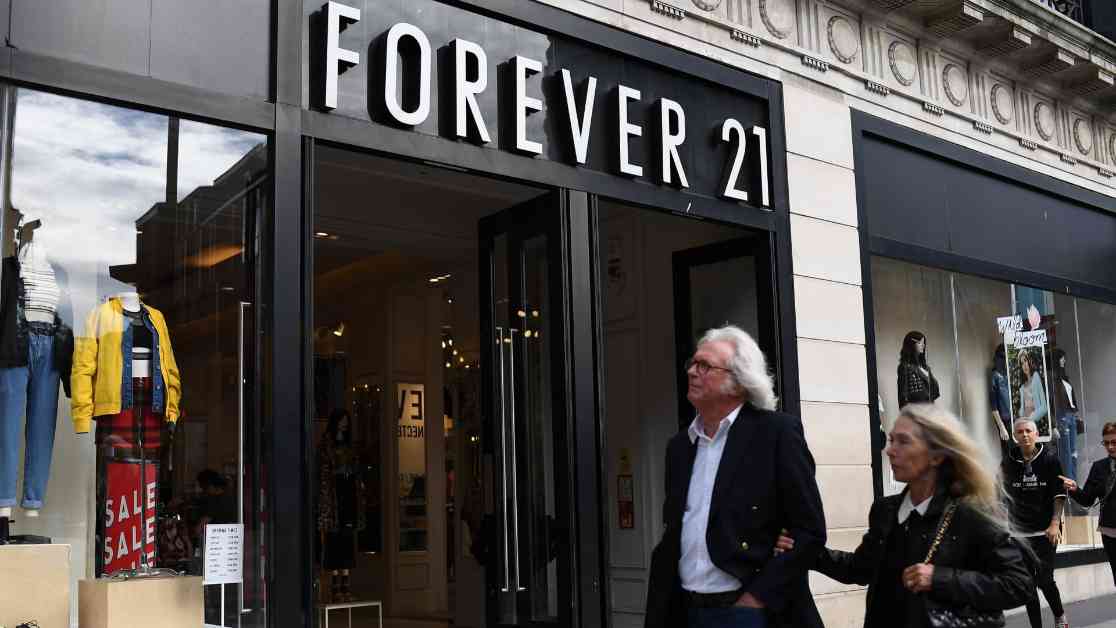Forever 21, a well-known fast-fashion retailer with over 380 stores in the U.S., is facing financial struggles and seeking rent concessions from landlords. The company has reportedly asked some landlords to reduce its rent by up to 50% as it tries to navigate declining sales and increased competition in the fast-fashion market.
Although Forever 21 has not hired advisors or considered another bankruptcy filing, it is working to restructure its leases to lower costs. The retailer has been dealing with issues such as managing inventory, understanding consumer trends, and responding to market demands effectively.
After filing for bankruptcy protection in 2019 and being acquired by a consortium including Authentic Brands Group, Simon Property Group, and Brookfield Property Partners, Forever 21 has been trying to overcome its financial challenges. However, closing hundreds of stores has not been sufficient to address its underlying issues.
The financial difficulties faced by Forever 21 have also impacted its operator Sparc Group, which manages operations for several other retailers as well. Sparc has been struggling with merging legacy brands, centralizing teams, and dealing with the shift to online retail.
Late payments to vendors and fluctuating payment patterns have raised concerns about Forever 21’s financial health. While some companies delay payments for various reasons, consistent late payments could indicate larger financial problems.
In a rapidly evolving retail landscape, Forever 21 is finding it hard to keep up with ultra-fast-fashion competitors like Shein and Temu. These brands have revolutionized the industry with on-demand manufacturing and quick response to consumer trends, making it challenging for traditional retailers to compete.
Authentic Brands CEO Jamie Salter admitted that acquiring Forever 21 was a mistake and underestimated the threat posed by newer competitors. However, a partnership with Shein has helped drive foot traffic to Forever 21’s stores and boost sales. The collaboration involves co-branded apparel sold primarily on Shein’s website, as well as pop-up stores and shared returns.
Despite concerns that Shein could potentially take over Forever 21’s physical stores, industry experts believe this scenario is unlikely due to differences in business models and retail experience. Shein’s focus on small-batch production and rapidly changing inventory may not align with the traditional brick-and-mortar presence of Forever 21.
Overall, Forever 21’s request for rent concessions reflects the challenges faced by legacy retailers in a competitive market dominated by fast-fashion e-commerce giants. Adapting to changing consumer preferences and industry trends will be crucial for the brand’s survival in the evolving retail landscape.








